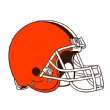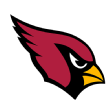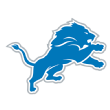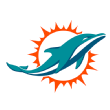2020 NFL free-agency winners and losers: Why Dak Prescott, Kyler Murray and Browns fans are happy

The 2020 NFL free-agent market officially opened Wednesday amid one of the more unusual weeks in league history. With the rest of the sports world shut down this week due to the coronavirus outbreak, all eyes were on the NFL's annual frenzy of player movement. And the league did not disappoint.
We've seen seven teams ensure that they would have new starting quarterbacks next season -- most notably the Patriots after bidding farewell to Tom Brady -- while two others re-signed their incumbents. And it all happened amid unique rules that restricted travel and access to team facilities. As a result, many deals weren't formally announced by teams who haven't yet arranged physicals for their new players.
But our annual assessment of winners and losers pushes forward based on ESPN-confirmed reports, with six of the former and five of the latter.
WINNERS OF FREE AGENCY
Cleveland Browns
The Browns are ubiquitous members of every offseason winners list. One of these years, it will make them winners during the season, as well.
Is this the year? All we can say now is that each of their moves this week was as close to an objective upgrade as any they could have executed. No one would turn down the addition of Jack Conklin at right tackle if the other options were Chris Hubbard or Greg Robinson. It would be hard to argue that new tight end Austin Hooper doesn't bring the Browns a new dimension. And if quarterback Baker Mayfield were injured, new backup Case Keenum would give the Browns a decent chance to stay afloat.
The two biggest questions facing the Browns weren't fixable through free agency. We still can't know whether coach Kevin Stefanski can improve the team's on-field discipline. And for all the talk about Cleveland's offensive line, we won't find out for a while whether Mayfield can improve his decision-making and recognition.
But there is no doubt the Browns have a better talent at the right positions after this negotiation period.
Buffalo Bills
Sometimes, heavy forays into free agency actually work. There was almost universal agreement that the Bills' 2019 spree played a significant role in clinching a wild-card spot. And after their efforts this week, the Bills might have made themselves the favorites in the new-look AFC East.
The big-ticket acquisition, of course, was landing Vikings receiver Stefon Diggs via a trade. But the Bills made plenty of other important and thoughtful moves. First, they made sure to prevent a backslide from their otherwise improved offensive line in re-signing guard Quinton Spain. Then they went hard at upgrading a defensive line already anchored by defensive tackle Ed Oliver by signing veteransQuinton JeffersonandVernon Butler. And it's likely that coach Sean McDermott will have a better idea of how to use new Buffalo cornerback Josh Norman, dating to their time together with the Panthers.
As is the case with the Browns, free agency couldn't address the Bills' most significant question. You can't directly make quarterback Josh Allen a more consistent and accurate passer with external moves. But at the very least, another strong offensive line and an enhanced set of wide receivers can help maximize the good throws he does make.
The Tampa Bay Buccaneers' box office
The Buccaneers' agreement with quarterbackTom Bradywill no doubt elevate their chances to make a playoff run in 2020. Their first victory, however, arrived via ticket sales. Fans rushed the team's website Tuesday night, finding themselves in a digital queue that for season tickets extended to nearly 6,000 people at some points.
To be clear, the Bucs had plenty of room for growth. Their announced home attendance ranked among the NFL's five lowest in each season of the previous decade, and in 2019, they ranked No. 30 with an average of 51,898.
Gate receipts are among the revenue sources NFL owners will share under the new collective bargaining agreement, so the Buccaneers will receive only a partial financial boost from the run on tickets. More important, though, the team is on its way to creating the kind of game-day environment it hasn't experienced in decades. Remember, the most recent playoff game the Buccaneers won was Super Bowl XXXVII after the 2002 season.
How much has the Buccaneers' box office won? According to ESPN's Jenna Laine, the team sneaked in a 15% price hike on new season-ticket holders -- just in time to gouge the group of people who are excited about the organization's product for the first time in decades. Capitalism doesn't pause for tact, but the people in charge can step in to guide it if they choose. If the Buccaneers view the Brady signing as the first step in rebuilding a dormant fan base, they should probably avoid short-term cash grabs.
Dak Prescott
Players don't normally celebrate when they are tagged as a franchise player. The arrangement locks them into a one-year contract with no future guarantees. But assuming Prescott is taking a long-term approach, the 2016 fourth-round quarterback should be thrilled to receive the exclusive-rights tag from the Dallas Cowboys.
If nothing else, the tag puts Prescott one year closer to testing his true value on the open market. If he wanted to, he could follow in the footsteps of Kirk Cousins by playing under a tag in 2020 and 2021 -- earning close to $70 million in those two years -- and then assume that a third tag in 2022 would be cap-prohibitive.
Assuming his performance doesn't regress in the meantime, Prescott would be a 28-year-old unrestricted free-agent quarterback in 2022. Cousins was 29, with only one Pro Bowl on his résumé, when the Vikings handed him an NFL-record $84 million in full guarantees. Prescott could command much more, and if his deal is short enough, he'd get back to the table or the open market again in his early 30s.
Cousins' second deal, which he agreed to terms on this week, assured him of a $150 million haul in his first five seasons in Minnesota. Looked at one way, Prescott has taken the first step toward raking in $200 million or more between 2020 through 2024.
Kyler Murray
Murray was the NFL's Offensive Rookie of the Year, and his season augured great promise for his future with the Arizona Cardinals. But for Arizona to be a top-end passing offense, Murray needed a top-end threat -- and he got perhaps the NFL's best in DeAndre Hopkins.
Hopkins will help bust the Cardinals out of their plodding movement down the field. In 2019, their 217.3 passing yards per game ranked No. 24 in the league. Murray, meanwhile, averaged 7.1 yards per attempt when targeting wide receivers. That ranked No. 29 in the league.
Cardinals coach Kliff Kingsbury's version of the Air Raid offense leans relatively heavily on four-receiver sets. They used that formation on 328 snaps last season, more than the next five teams combined. With three other receivers on the field, Hopkins in theory could face a minimum of double-teams.
No matter how you look at it, though, an interesting offense just got more exciting.
Chase Daniel
Daniel, 33, extended an incredible and unique career arc as a quarterback who has never once competed to start but has played well enough when called upon to merit more than a decade as a backup.
After a two-year stint with the Bears, which followed time with the Saints, Chiefs and Eagles, Daniel signed a three-year deal with the Lions that would max out at $13.5 million. Assuming he makes the final roster, Daniel probably will surpass $40 million in career earnings in 2020.
In 10 NFL seasons, Daniel has made five starts and thrown a total of seven touchdown passes. Since the 1970 merger, only one NFL quarterback has managed a 10-year career with five or fewer starts, according to the Pro Football Reference database. Daniel shares that distinction with David Humm, who started one game between 1975 and 1984 while serving as the backup for the Raiders, Bills and (Baltimore) Colts.
The Lions have repeatedly denied offseason rumors that they would move on from starter Matthew Stafford, who missed eight games last season because of injury. So if all goes according to plan in Detroit, Daniel will spend another season assuring coaches that the world would not be lost if he stepped on the field.
LOSERS OF FREE AGENCY
Miami Dolphins and Detroit Lions
How many times do we have to say it? You. Can't. Replicate. The. Patriots. Both the Dolphins and Lions doubled down on that fantasy this week, with dispiriting results.
The Dolphins, coached by former Patriots assistant Brian Flores, guaranteed linebacker Kyle Van Noy $30 million and also signed linebacker/fullback Elandon Roberts. They also committed $57 million in guarantees to cornerback Byron Jones, who will play alongside veteran Xavien Howard ($46 million). The team now leads the NFL in salary cap tied to the cornerback position, possibly because Flores wants to play Patriots-style man-to-man defense. Even last season, the Dolphins ranked No. 4 in the NFL by using man coverage 61% of the time, according to ESPN metrics using NFL Next Gen Stats data.
Meanwhile, the Lions -- led by two former Patriots staffers in general manager Bob Quinn and coach Matt Patricia -- guaranteed linebacker Jamie Collins $18 million, while also agreeing to terms with defensive tackle Danny Shelton and trading for defensive back Duron Harmon.
This isn't so much a comment on the players themselves, but on the cockeyed and still unproven idea that there is some kind of magic sauce that comes with someone who has been in the Patriots' program. Why can't we just acknowledge that Patriots coach Bill Belichick has built a unique set of circumstances that routinely maximizes players in ways that aren't likely to be replicated elsewhere? As a matter of team-building, giving an edge to people with a Patriots connection probably could cloud out more qualified candidates. Just stop it!
Deshaun Watson
The Texans' quarterback absorbed multiple wounds this week. The biggest was the loss of DeAndre Hopkins, whom he targeted on 29% of his passes last season -- the second-highest rate of targets per total passes on any NFL team.
In a larger sense, however, it became clear that Watson is marooned on a franchise that has made a series of indefensible football decisions during the past year. Coach/general manager Bill O'Brien has dumped some of the team's best young stars, from Hopkins to Jadeveon Clowney, at fire-sale prices, all while feeding an odd obsession with aging running backs. In exchange for being one of the league's most exciting, creative and courageous players, Watson is on track to be buried under organizational dysfunction.
Three seasons into his career, Watson is eligible for a contract extension. From a business perspective, he would be wise to sit tight. If you cared about Watson, his well-being and his future, would you want him tied to the Texans for the longer than he has to be? Hashtags can be silly, but #FreeDeshaun seems appropriate.
New England Patriots
This one is almost too easy. The Patriots' loss of Tom Brady is an event that has changed the course of NFL history. For the first time in two decades, New England isn't likely to be considered a Super Bowl contender.
A handful of NFL teams have successfully transitioned from a Hall of Fame quarterback, whether it was the 49ers from Joe Montana to Steve Young or the Packers from Brett Favre to Aaron Rodgers. But nothing about the Patriots' situation, at least as of today, suggests they can match that feat. It seems much more likely that second-year player Jarrett Stidham is the guy who happened to be the backup when Brady decided to leave, rather than being a legitimate contender to take over long term.
It's always possible that Stidham could surprise us all, or that Patriots coach Bill Belichick could salvage the career of a middle-aged veteran like Andy Dalton. But from all appearances, the Patriots took more body blows this week than they had in any other three-day period in recent memory, and Belichick will have to work miracles in 2020 to overcome them.
Chicago Bears
The Bears admitted two really big mistakes this week, moving on from their top draft picks in the 2016 (linebackerLeonard Floyd) and 2017 (quarterback Mitchell Trubisky). It's better to admit mistakes than to double down on them, but it still left the Bears scrambling to find expensive replacements.
They first doled out $30 million in guarantees to lure pass-rusherRobert Quinn, who turns 30 in May and will be playing for his third team in as many seasons. And to replace Trubisky, the Bears then traded a fourth-round compensatory pick in exchange for Nick Foles, who went 0-4 as a starter for the Jaguars last season and is scheduled to earn about $16 million in 2020.
When you add those moves to the inexplicable decision to sign tight end Jimmy Graham to a two-year, $16 million deal -- one that makes you wonder if the Bears paid attention to their NFC North rivals in Green Bay last season -- you see a pretty bleak picture of desperation. You can only assume that general manager Ryan Pace won't get another chance to set the franchise on a different tack.
Los Angeles Rams
What did the Rams get out of the record-breaking $57 million contract extension they handed tailback Todd Gurley II in 2018? They no doubt received some positive public relations and probably made Gurley happier than if they had just allowed him to play out his rookie contract. Otherwise, all the money they gave him -- a $21 million signing bonus, a $7.5 million roster bonus and $5.95 million in base salaries -- did nothing other than remind the NFL world how risky it is to extend the contracts of veteran running backs.
Gurley was part of the team that advanced to Super Bowl LIII, but his production and usage had already slowed by that point. In reality, Gurley didn't play past the length of his rookie deal. He was drafted in 2015, signing a four-year contract with a fifth-year option, and was released after his fifth season. So, in the end, the Rams are left with a cap hit of more than $20 million for a little PR and locker room harmony.
Related Video
Related Topics
- SPORTS
- ESPN
- HOUSTON TEXANS
- FREE AGENCY
- NFL FREE-AGENCY
- LOSERS
- FREE AGENTS
- DESHAUN WATSON
- DEANDRE HOPKINS
- DAK PRESCOTT
- NEW ENGLAND-PATRIOTS
- DALLAS COWBOYS
- WINNERS
- ARIZONA CARDINALS
- DETROIT LIONS
- LOS ANGELES-RAMS
- BUFFALO BILLS
- LIST
- MIAMI DOLPHINS
- NFL
- TAMPA BAY-BUCCANEERS
- CHASE DANIEL
- DEALS
- DAILY
- TOM BRADY
- CLEVELAND BROWNS
- KYLER MURRAY
- SIGNING


















